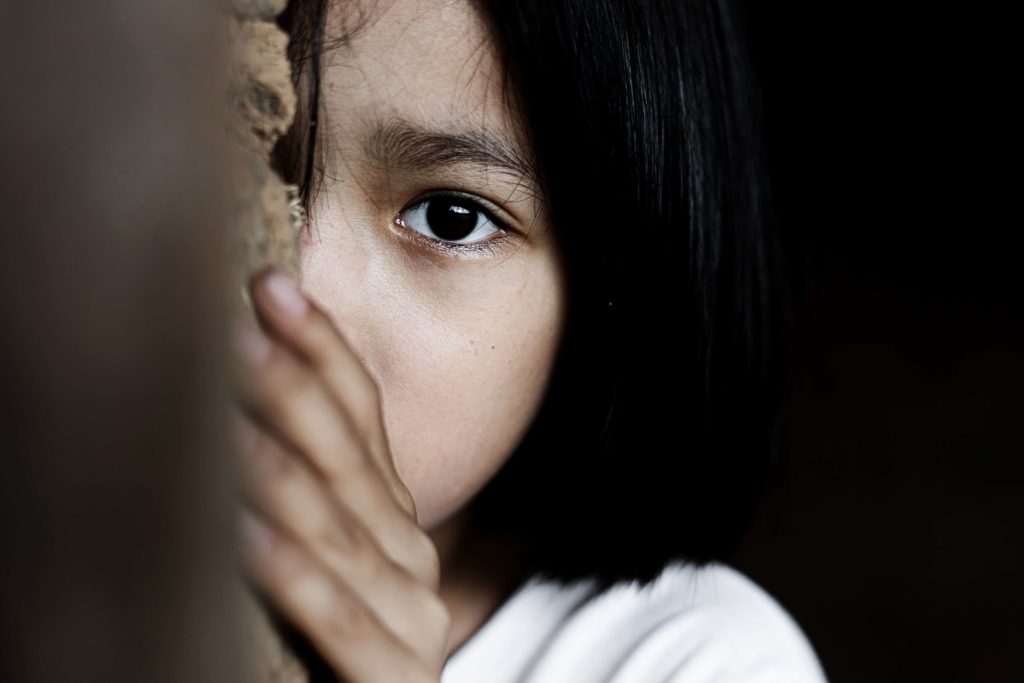VAWA Protections For Abused
Immigrant Children

Salvadoran Immigrant Child Overcomes Deportation And Wins Green Card Based On Domestic Violence Suffered By Parent
Carla was four years old when she and her mother, Veronica, left El Salvador and came to the U.S. They joined her father, Benito, who had entered a few years before. They entered the U.S. illegally, evading inspection.
By the time they arrived, Benito had become a lawful permanent resident under the Special Agricultural Worker program. A few years later, he filed papers to legalize his wife and daughter for benefits through the Family Unity program in effect at that time. The petition was approved. Benito never attempted to sponsor them for permanent resident benefits.
During their 15+ years of marriage, Veronica frequently suffered physical, mental, and psychological abuse at the hands of her husband.
Carla, as well as her younger U.S. born siblings, witnessed many of these incidents – which took place two to three times per week. Because of Veronica’s lack of valid immigration status, the family suffered in silence.
If any of the children started to cry, panic, or scream, Benito would take his anger out on them. He was harsher on the boys and often spared Veronica from his physical wrath.
The family stayed in this abusive relationship until one day when Benito was arrested for alien smuggling. He was convicted in federal court and subsequently deported by the immigration court for life. His lawful permanent resident status was stripped.
How VAWA Protected Abused Immigrant Child Trapped In Domestic Violence
Not knowing what to do, Veronica visited a Woman’s Help Center for help. She was told to seek a green card under the Violence Against Women Act. She hired a paralegal to prepare her application.
Upon receiving her paperwork, the government asked for more evidence. Veronica was unable to provide all the information required. She lost. She retreated into hiding from immigration authorities once again.
About five years later, Carla was offered a ride home from high school by one of her friends who had just passed the state driver’s examination. They were pulled over by a police officer. The car matched the description of a vehicle driven by a woman who had stolen some items from a nearby clothes store.
After investigation, the police did not file charges against them. Because Carla lacked immigration documents, the officers contacted ICE. She was taken into custody, released later that day, and served with a Notice To Appear at immigration court to face deportation charges based on her undocumented Salvadoran immigrant status.
Denied VAWA Application Became Basis For Defense Against Deportation
Despite her divorce, Veronica was told by friends that Carla could still proceed under the old petition filed by her father. However, at court, Carla learned her father had been deported. Since he had lost his permanent resident status, seeking a green card under the old petition was not a viable option. The judge suggested that she find a lawyer to assist her.
The pastor at church recommended Carlos. He had helped other congregation members in the past. They made an appointment to meet with Carlos at his Riverside immigration office.
As Carlos explored Carla’s family history, he sensed that the domestic violence inflicted on her mother might support a claim for relief from deportation. He explained the special provisions under VAWA for immigrant children.
Veronica did not agree with his view. But he convinced her to give him the chance to explore the possibility in more depth.
To get a clearer picture, Carlos had to obtain all of her mother’s past immigration records, including the denied VAWA petition.
As he had surmised, Veronica’s claim was not rejected based on insubstantial evidence regarding physical and psychological abuse. She had lost due to other requirements.
VAWA For Immigrant Children Under Cancellation Of Removal
Although the law had not yet been tested in the manner proposed by Carlos, he firmly believed Carla could present a defense against deportation under new VAWA Cancellation of Removal provisions as a child victim of domestic violence.
Both Carla and her mother continued to express their doubts, largely due to her mother’s failed VAWA application. In addition, Veronica had been told VAWA claims could not go forward if she had been divorced for more than two years.
Carlos explained the information given to Veronica was only half-true. He stressed the rules for winning a VAWA case at immigration court were different than those governing filings with the USCIS offices.
Carlos pointed out a couple of significant distinctions that might benefit Corina.
- First, he told them, it did not require her father to have current legal status. A child of an abuser who had been a lawful permanent resident – but who lost that status – could still go forward with a VAWA claim.
- Second, he noted the law protects those who had been the child of a permanent resident or a citizen, even if the parents’ divorce was more than two years ago.
- Third, Carlos emphasized, not only physical abuse, but also extreme cruelty could support a claim under Cancellation of Removal VAWA for immigrant children – especially when combined with the evidence of extreme cruelty in Carla’s case that included the psychological anguish of watching the ongoing physical abuse of her mother.
Pain And Victory: VAWA As Defense Against Deportation At Immigration Court
To show the level of mistreatment, Carlos knew the documents previously filed in her mother’s denied VAWA case would be crucial.
He decided to interview all of Carla’s U.S. born brothers and sisters – and supplemented the earlier records with their testimony regarding their mother’s relationship with their father.
It was a painful ordeal for the family. Each sibling understood her odds of winning would increase, to the extent they were willing to share recollections of their father’s violent past.
Carlos also learned about – and obtained documents regarding – how Carla’s school performance had been negatively affected by her mother’s dysfunctional marriage to Benito.
Armed with this evidence, Carlos presented Carla’s claim for VAWA relief for abused children under Cancellation of Removal at Carla’s immigration trial.
The government tried to derail Carla’s case on technical grounds. The judge dismissed their arguments. He agreed with Carlos’ interpretation of the untested law – that Carla’s matter fit within the parameters outlined by Congress, even though he had not overseen a case with such issues beforehand.
The judge canceled Carla’s deportation proceedings and granted an adjustment of her immigration status from a Salvadoran immigrant living without permission in the U.S. to legal permanent resident.
Carla, Veronica, and her family were ecstatic. They understood that without their ability to stick together as a family, Carla would have been separated from them, perhaps for their entire lives.
Today, Carla is a U.S. citizen. She is the happily married mother of a professional bookkeeper with two young children.
No matter how difficult the road ahead may seem, do not give up without exploring all your options. This series of immigrant success stories is dedicated to those who refuse to stop believing that some day, somehow, victory will be theirs.
This article about the Violence Against Women Act and deportation defense issues is Example Number 11 on the different types of challenges and obstacles which immigration lawyer Carlos Batara has helped immigrants overcome.
Previous: Immigrant Wins I-601 Waiver Immigration Appeal Despite Conviction
Ready to take a serious and honest look at the strengths and weaknesses of your immigration case? Let’s get started with a personalized strategy and planning consultation . . .





